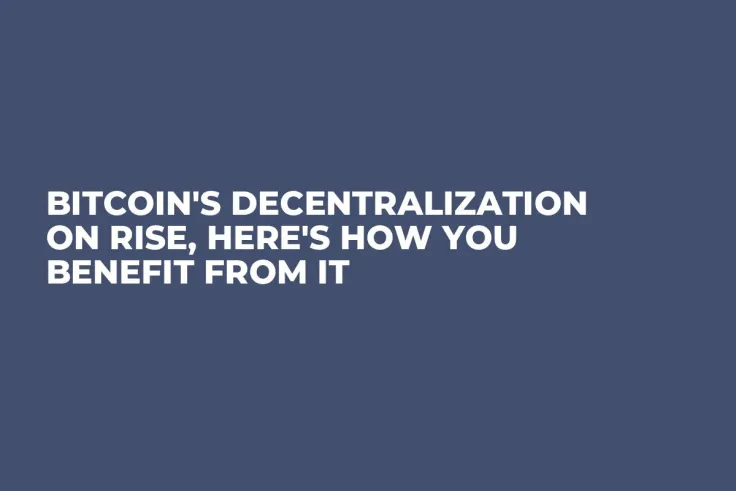
Disclaimer: The opinions expressed by our writers are their own and do not represent the views of U.Today. The financial and market information provided on U.Today is intended for informational purposes only. U.Today is not liable for any financial losses incurred while trading cryptocurrencies. Conduct your own research by contacting financial experts before making any investment decisions. We believe that all content is accurate as of the date of publication, but certain offers mentioned may no longer be available.
There is a pivotal shift happening in the Bitcoin ecosystem: The leading cryptocurrency is becoming more independent, thanks to its significant holders. Data shows that Bitcoin inflows to addresses owning 0.1% or more of the total supply have hit a 2023 peak. Interestingly, these increases appear to be independent of exchanges' activities, suggesting a potential accumulation phase by large holders, often known as "whales."
This development offers several insights and advantages. First, the independence from exchange activity demonstrates the maturing of Bitcoin as an asset class. It reduces Bitcoin's reliance on centralized exchanges for value and liquidity. By holding their assets in private wallets rather than on exchanges, these large holders are signaling a long-term commitment to Bitcoin, which in turn boosts market confidence.
Bitcoin inflows to addresses owning 0.1% or more of the total supply have hit a 2023 peak. Data suggests these increases are independent of exchanges' activities, pointing towards a potential accumulation phase by large holders. #CryptoNews #Bitcoin pic.twitter.com/XNH7EzzFEd
— IntoTheBlock (@intotheblock) June 24, 2023
The evident accumulation by large holders signifies strong belief in Bitcoin's prospects. When influential market participants accumulate assets, it often sparks a similar trend among smaller investors, eventually leading to a potential price rise. With substantial holders amassing Bitcoin, it suggests they foresee a bullish future for the cryptocurrency.
But what does this mean for the everyday Bitcoin user? This shift in behavior benefits regular users by adding to the overall stability of the Bitcoin network. When more Bitcoins are held by long-term investors rather than short-term traders, it helps reduce the volatility associated with speculative trading. Moreover, as Bitcoin becomes less dependent on exchanges, the risk of large-scale hacks, a constant concern in the crypto space, also diminishes.
This trend also aligns with Bitcoin's underlying ethos of decentralization. With fewer coins held on centralized exchanges and more in individual wallets, the control and ownership of Bitcoin become more dispersed, resonating with the cryptocurrency's fundamental principle of empowering individual ownership.


 Dan Burgin
Dan Burgin Vladislav Sopov
Vladislav Sopov